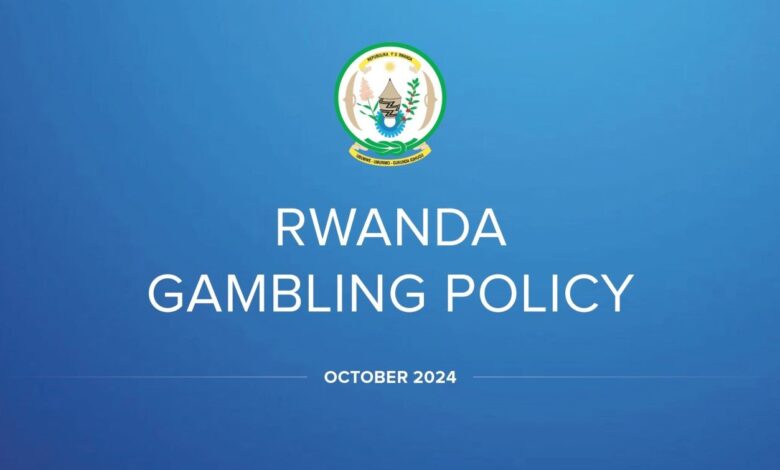Rwanda Introduces Enhanced Gambling Policy with Stronger Regulations and Improved Player Safeguards

The Rwanda Development Board (RDB) has launched a new gambling policy designed to strengthen regulation, enhance tax revenue, and mitigate the social risks associated with gambling.
The policy’s introduction follows RDB’s recent assumption of responsibility for gambling oversight in June 2024. This mandate encompasses setting licensing standards, monitoring compliance, and safeguarding vulnerable populations.
With a notable increase in gambling activities, particularly among the youth, the new policy aims to strike a balance between harnessing economic advantages and upholding social responsibilities. Under the restructured framework, all forms of gambling—including lotteries, casinos, and sports betting—will now face stricter regulations. This applies to both brick-and-mortar establishments and the increasingly popular online platforms.
The gambling sector has emerged as an essential part of Rwanda’s economy, generating approximately RWF 264.3 billion between 2013 and 2019, which included RWF 8.8 billion in taxes and created around 2,000 jobs. Notably, sports betting accounts for 79% of employment opportunities in the field, signifying its pivotal role in the industry.
Read Also: Exclusive – Steering the Future of iGaming: Key Perspectives on Industry Growth and Engagement
However, this rapid expansion brings with it challenges such as increasing gambling addiction among young people, leading to financial troubles, mental health issues, and greater poverty for vulnerable communities. According to the board, the rise in illegal gambling and tax evasion further underscores the necessity for stringent regulatory measures.
The new policy introduces significant reforms, notably a revision of taxation structures for both operators and players. Currently, gambling operators are taxed at 13% of their gross revenue while players face a 15% tax on winnings. The government plans to adjust these rates, aligning them with international standards, which could mean significantly higher taxes compared to regions like Macau, the United States, and the United Kingdom. Funds generated from these tax increases are earmarked for vital social initiatives, particularly in the education and healthcare sectors.
Additionally, the policy prioritizes player protection, introducing features such as self-exclusion programs, spending limits, and support services for individuals grappling with gambling addiction. Awareness campaigns will target vulnerable groups, notably young people, to educate them about the associated risks of gambling.
To further support responsible gambling, advertising regulations will become stricter, banning endorsements by celebrities and limiting advertisements in sensitive areas like schools and places of worship. The establishment of a National Gambling Authority and a dedicated Gambling Commission will serve to enhance institutional effectiveness. These bodies will ensure compliance, monitor market dynamics, and promote ethical practices among operators.
Technological innovation will play a crucial role in this reform process, particularly in the realm of online gambling, where strict licensing and reporting standards will now be mandated. Utilizing digital tools will enable authorities to monitor gambling activities in real-time, thereby curtailing tax evasion and illegal operations.
This policy shift also acknowledges the broader implications of gambling on society. While the gambling sector has driven job creation and investment, its unregulated growth has contributed to social inequalities. The government’s new measures seek to counteract these trends by fostering a safer playing environment and ensuring that the industry has a positive societal impact. Support hotlines and advisory services will be set up to assist those affected by gambling-related issues, complementing the overarching effort to promote responsible gaming.






















